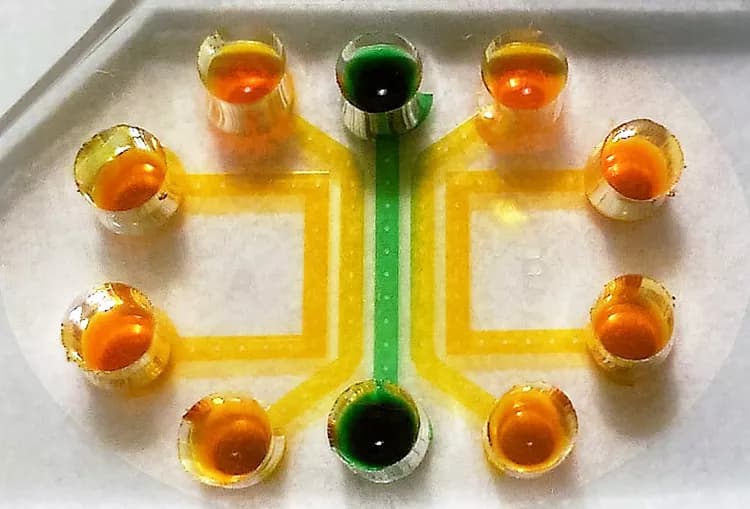
Stimulating Neurons Could Protect Against Brain Damage, Research Shows
A breakthrough in understanding how brain damage spreads -- and how it could potentially be limited -- has been made through a collaboration between neuroscientists and engineers at the Universities of Dundee and Strathclyde.
They have uncovered a previously unknown mechanism in the brain that allows networks of neurons to protect against the kind of spreading secondary damage seen in cases of strokes and traumatic brain injuries.
"If this network activity could be triggered clinically as soon as possible then major brain damage could be minimised and recovery periods shortened," said Dr Christopher Connolly, Reader in Neurobiology in the University of Dundee's School of Medicine.
"Although this is basic laboratory research, it does now re-open the door to the possibility of stopping ongoing brain damage.
"Slow acting neuroprotection is well known but approaches to induce protection require at least 24 hours notice to be effective. This is of no practical use in a clinical emergency situation such as a stroke or traumatic brain injury, so current treatment options are limited to aiding the recovery processes.
"We have identified that neuronal networks react to an insult by sending rapid -- in minutes -- warning signals in an attempt to protect against the toxicity that causes brain damage. If that could be recruited clinically then it would give us a tool to deploy quickly in cases where brain damage was a risk.
"Where we can't protect neurons quickly, we can recruit the help of surrounding neurons to do this for us. It is a case of `If you need a job done quickly, ask the expert' and in this instance the experts are the neurons themselves."
Laboratory-based modelling also showed that the rapid use of benzodiazepines (Valium) appeared to mimic the protection offered by the neuron networks.
"This is something we certainly need to test further but it does suggest the possibility of an effective and immediate pharmacological treatment for stroke," said Dr Connolly.
Dr Connolly worked on the project with Dr Michele Zagnoni, Senior Lecturer in Electronic and Electrical Engineering at the University of Strathclyde.
Dr Zagnoni said, "Using microfluidic technology, we were able to produce in-vitro neuronal networks to investigate spreading toxicity in the brain, which is the cause of brain damage even after an initial trauma.
"Through this process we were able to demonstrate how the spread of this toxicity is driven. In doing that we also uncovered a previously unknown, fast acting, neuroprotective signalling mechanism.
"This mechanism utilises the innate capacity of the surrounding neuronal networks (grown in the laboratory) to provide protection against the spreading toxicity. By stimulating that network, then theoretically we could limit the spread of brain damage. That requires further work, but it is an exciting and important possibility."
The results of the research are published in the journal Scientific Reports.
The project examined the process known as acute secondary neuronal cell death, which is seen in neurodegenerative disease, cerebral ischemia (stroke) and traumatic brain injury (TBI) and drives spreading neurotoxicity into surrounding, undamaged, brain areas.
Materials provided by University of Strathclyde. Note: Content may be edited for style and length.
Disclaimer: DoveMed is not responsible for the adapted accuracy of news releases posted to DoveMed by contributing universities and institutions.
Primary Resource:
Samson, A. J., Robertson, G., Zagnoni, M., & Connolly, C. N. (2016). Neuronal networks provide rapid neuroprotection against spreading toxicity.Scientific Reports, 6.
Related Articles
Test Your Knowledge
Asked by users
Related Centers
Related Specialties
Related Physicians
Related Procedures
Related Resources
Join DoveHubs
and connect with fellow professionals

0 Comments
Please log in to post a comment.